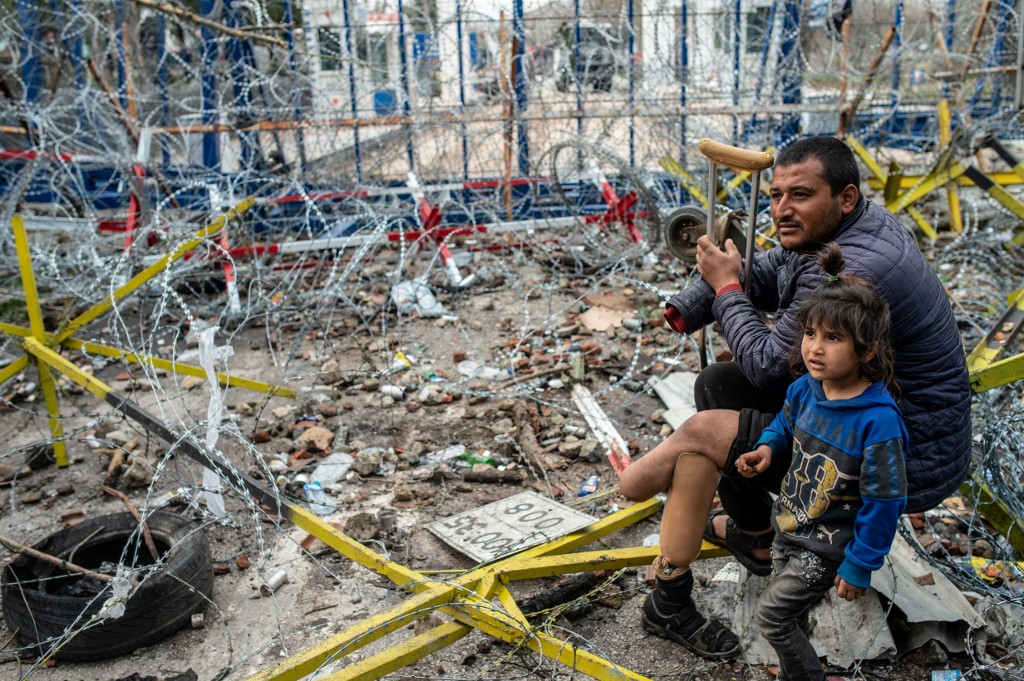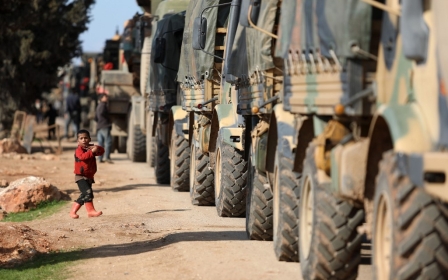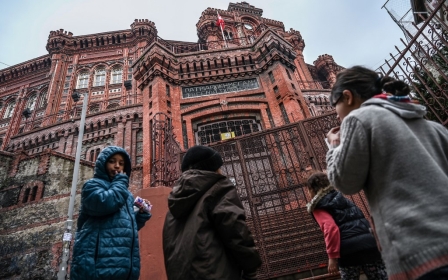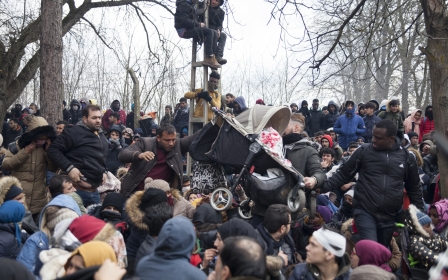Turkey refugee crisis: You are no longer welcome in Fortress Europe
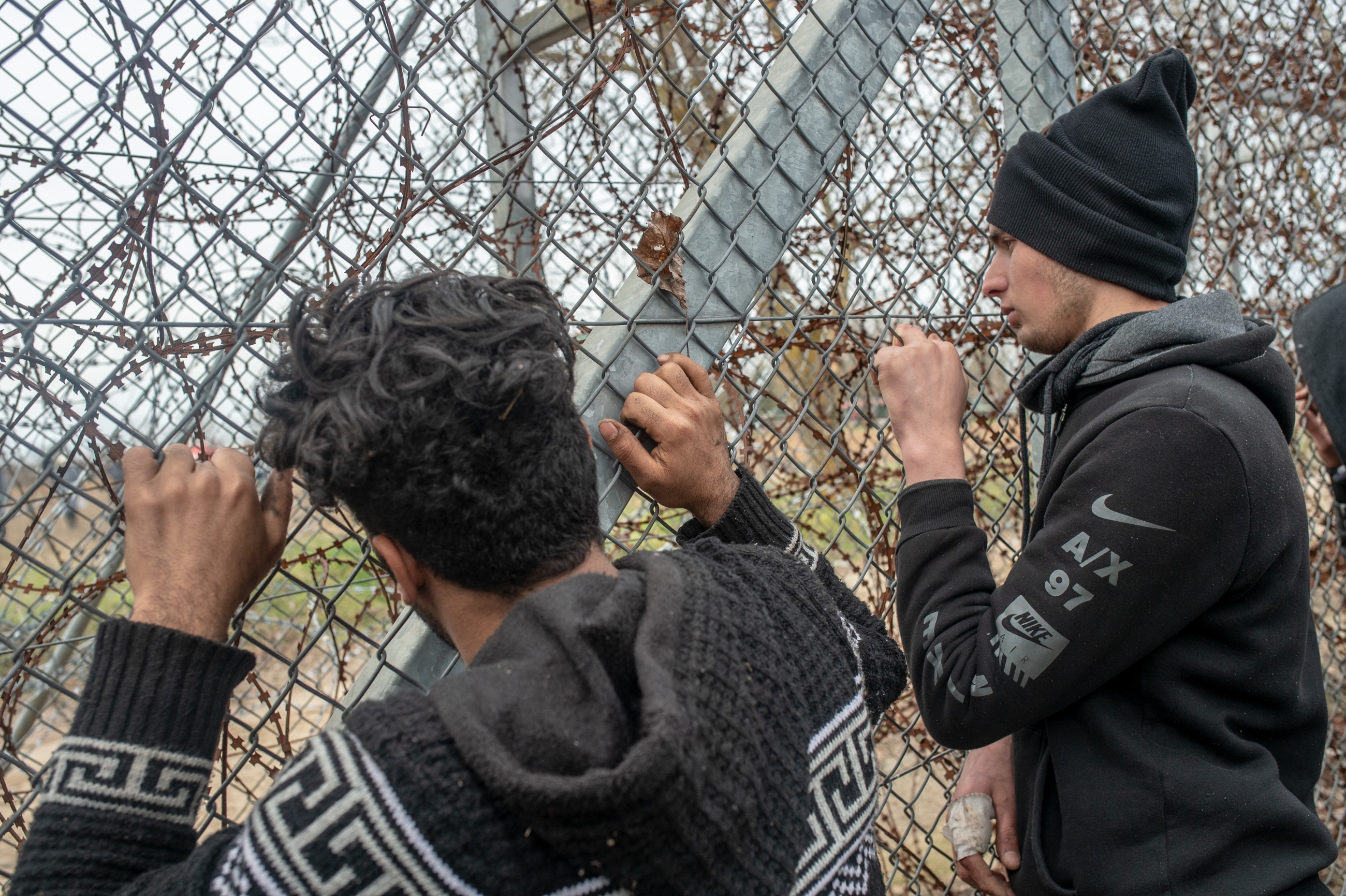
In Europe, the security umbrella of the post-World-War-II era and the prosperity of the post-Cold-War era are crumbling.
Once regarded as a bastion of democracy and human rights, prized for its economic growth and humane living conditions for its citizens, Europe is on the verge of coming to terms with an ugly truth: the welfare state and all its perks are waning. Many Europeans are just not aware of this yet.
Some are. Ursula von der Leyen, president of the European Commission and Germany’s former defence minister, had another calculation in mind this week when she praised Greece as Europe’s “shield” over its handling of the refugee flow, after Turkey decided to allow asylum seekers to cross the border.
Right-wing surge
It was as if the Battle of Thermopylae was being reenacted 2500 years later. Instead of Spartan hoplites armed with spears, we saw Greek coastguards and their Frontex supporters equipped with their sticks to deflate or deter incoming refugee “attacks” in the form of dinghies.
New MEE newsletter: Jerusalem Dispatch
Sign up to get the latest insights and analysis on Israel-Palestine, alongside Turkey Unpacked and other MEE newsletters
Von der Leyen is well aware that now is not the time to show humanity to those in need - and not because Europeans are inherently racist or refugees are disturbing the societal order. It is because in the short term, the EU and officials from member states cannot afford to see far-right political movements, such as Alternative for Germany, Spain’s Vox party, Italy’s Northern League, and existing governments in Hungary and Poland - which feed on anti-immigrant sentiment and xenophobia - to become the mainstream.
Whether you’re a Syrian refugee, a Somali immigrant or a German national with immigrant roots, the message is clear: Europe is no longer what you think it is
Owing to the previous refugee crisis in 2014-16, these movements have gained momentum, fuelling concerns that they are on the verge of becoming part of the political decision-making process. Alternative for Germany (AfD) is not a coalition partner in the federal government yet, but its weight is already being felt. German Chancellor Angela Merkel’s chosen successor recently resigned after a controversial state election in which the far-right party disturbed the political balance.
In the long term, according to current calculations in Germany, the number of working people supporting pensioners is shrinking. Many European countries with an aging population are facing the same problem. Considering this demographic shift, the slow decline of the welfare state - or what’s left of it in these neoliberal times - seems a plausible, if not inevitable, outcome.
Between a rock and a hard place
So, why not support the system with immigrants? That’s exactly why the German government is seeking to attract qualified workers from abroad. Yet, there is an ultimate impasse in this reasoning: more immigration and employment opportunities for non-EU citizens to support the pension system so that we can take care of our aging population equates to more support for the right-wing parties aiming to halt immigration.
Merkel and her ilk are between a rock and a hard place. They obviously do not want to lend a hand to AfD and the likes, as the previous refugee influx turned out to be a prime breeding ground for resurgent racism, and even neo-Nazism.
The dilemma persists as the EU braces itself for the next refugee influx - and considering von der Leyen’s reaction, in addition to what we have been seeing on the Greek-Turkish border, Europe has taken the necessary “lessons” to avoid this happening again.
So, we come back to the starting point, where funds are being released for Greece to protect and shield the EU from refugees. That is the cost not only for keeping refugees out, but also to keep right-wing populists, racists and xenophobes at bay. That is the cost to protect what’s left of the welfare state, because the EU is understandably unwilling to surrender its living standards.
No longer welcome
When you make short-term calculations, the first things you give up are your values; ideals that you might hold dear for yourself, but not for others.
Seeing refugees stripped of their humanity in the eyes of EU officials could stir anger among progressive Europeans. Still, we are witnessing the new reality in Europe.
Whether you’re a Syrian refugee on the Turkish-Greek border, a Somali immigrant trying to cross the Mediterranean only to be stranded on a rescue boat for weeks, or a German national with immigrant roots who no longer feels safe in Hanau, the message is clear: you are no longer welcome in Fortress Europe, because this place is no longer what you think it is.
The views expressed in this article belong to the author and do not necessarily reflect the editorial policy of Middle East Eye.
Middle East Eye delivers independent and unrivalled coverage and analysis of the Middle East, North Africa and beyond. To learn more about republishing this content and the associated fees, please fill out this form. More about MEE can be found here.



